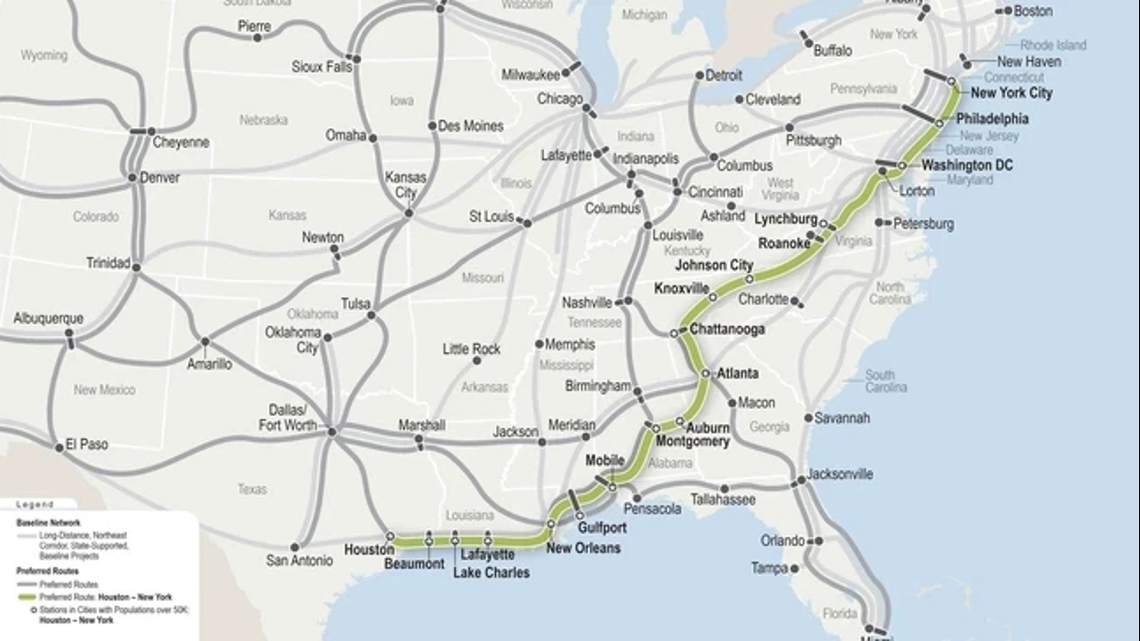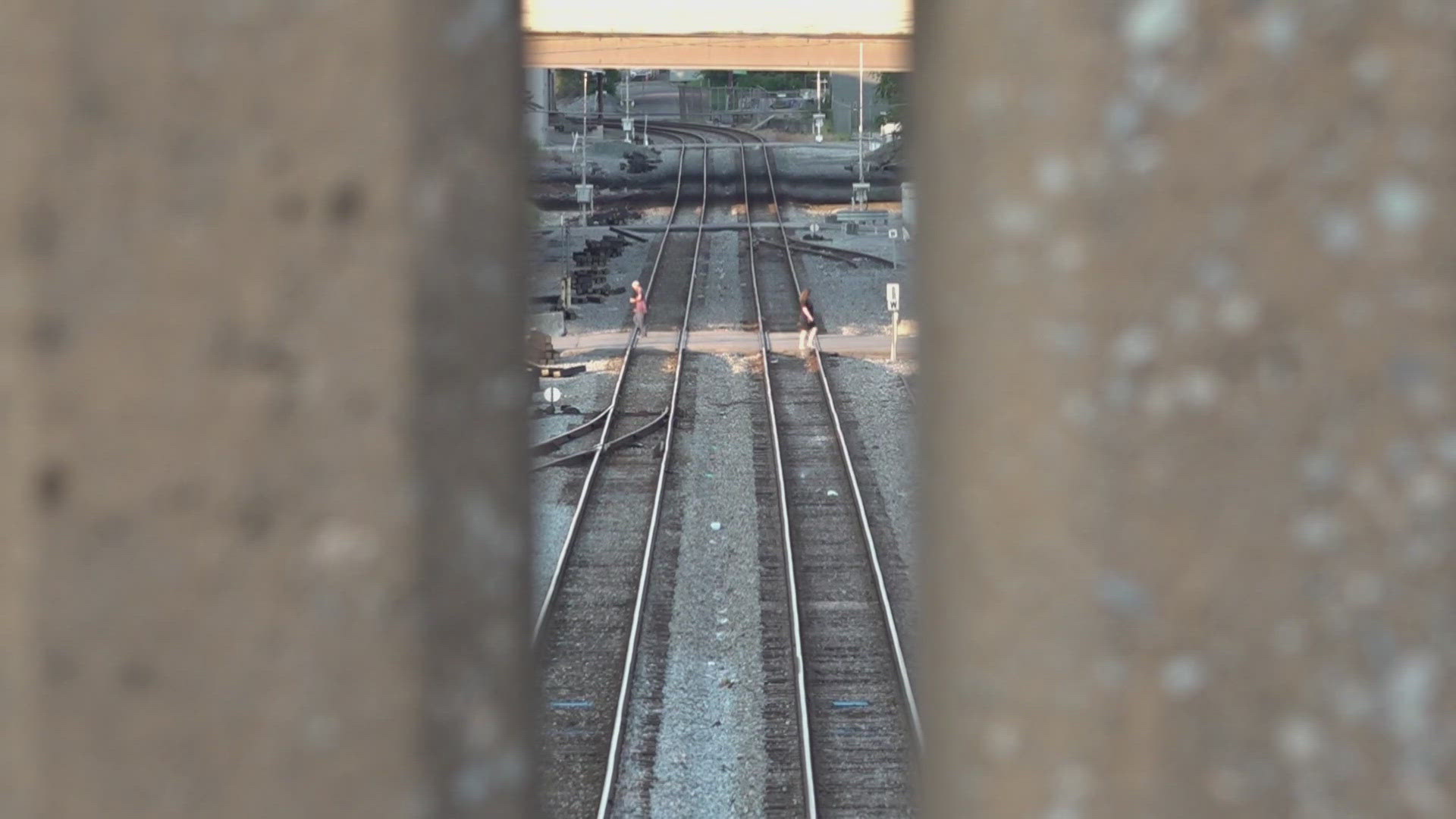KNOXVILLE, Tenn. — Plans for a future with a passenger rail system that goes through Knoxville are picking up steam. A map from the Federal Railroad Administration showed a proposed route for the rail system, running from New York down to Houston.
A study by the FRA lists Knoxville and Johnson City as possible night stops for the passenger train.
"We haven't had passenger service in Knoxville since the late 1960s by rail," said David Clarke, Transportation Engineer and former Director of UT's Center for Transportation Research.
The nearly 200-page document outlines a potential concept of what could happen. It adds fuel to efforts to bring service to Bristol.
"So we would be able to take a train from Knoxville to Atlanta and then perhaps to points south of Atlanta. According to the map, Atlanta would be a much more significant hub than it is today, according to this," said Clarke.
The concept route goes from Houston to New York, with daytime stops in Atlanta and Chattanooga and night stops in Knoxville and Johnson City.


"There's quite a bit of importance to linking the Tri-Cities to Knoxville to Chattanooga. And really, it goes beyond the borders of Tennessee," said Kevin Heaslip, Director of the Center for Transportation Research and Professor.
Portions from Roanoke to New York and from Mobile, Alabama, to Houston already exist.
"We'd like to have a train that, you know, arrives in the evening at a decent hour, and leaves in the morning at a decent hour," said Clarke.
The route would run about 43 hours, travel almost 2,000 miles and serve about 5.5 million people, according to the document.
"Part of the challenge is to get people attracted back to riding the train, get a buzz going," said Clarke.
According to researchers, Knoxville already has the foundation because of the city's freight train system.
"Knoxville has plenty of trains in it no matter where you go in the city," said Heaslip. "Here's lots of opportunities for passenger rail to mix in with these freight."
The biggest piece of the puzzle of the potential railroads comes down to funding, with the study projecting it could cost around $5 billion to build and take 15 years. The next step is for transportation leaders to make a report to Congress by the end of the year.

